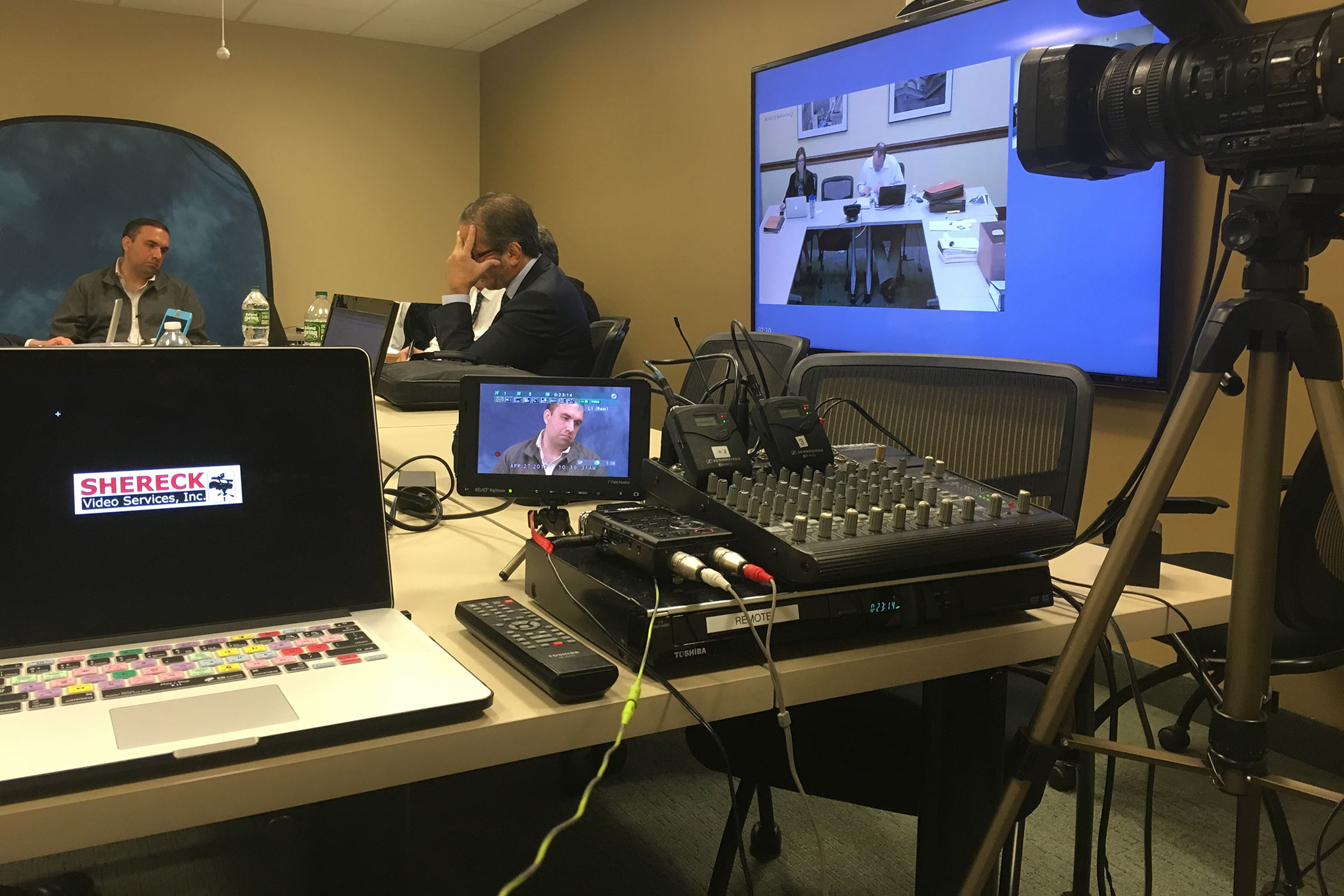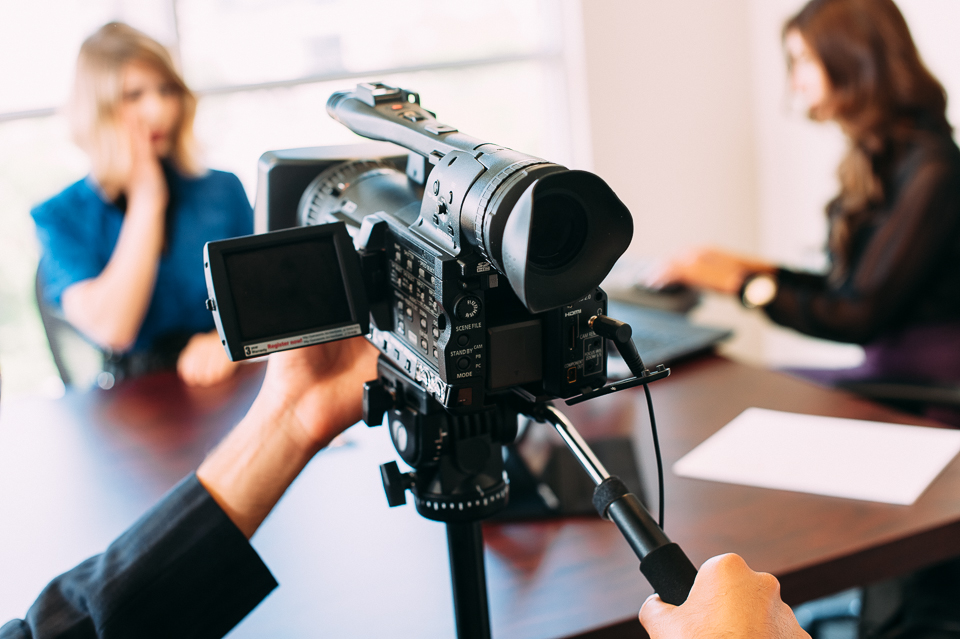Expert Legal Videography for Case Recordings.
Expert Legal Videography for Case Recordings.
Blog Article
The Duty of Legal Videography in Depositions and Trials
Lawful videography has arised as a vital tool in both depositions and tests, offering a multifaceted method to recording witness testimonies. By recording not only the spoken word but also the subtleties of non-verbal interaction, this medium improves the reliability of testimonies and protects important proof for future process. As lawyers progressively recognize its value, it prompts a much deeper assessment of how these visual records can influence juror perceptions and trial results. What implications might these developments hold for the future of lawful method?
Relevance of Lawful Videography
Legal videography plays a crucial duty in the documentation and discussion of depositions and trials. This specialized area combines technical skills with lawful expertise to produce a reliable document of procedures that can considerably affect instance results. The appearance of lawful videography enhances the understanding of witness statement, enabling jurors and courts to observe not only the talked words however likewise the attitude, feelings, and body movement of the witnesses.

The significance of lawful videography expands past the court; it also plays a crucial function in preserving proof for future reference, whether for charms or further lawsuit. Its combination into the lawful procedure is crucial for guaranteeing a fair and accurate depiction of the truths, eventually adding to the pursuit of justice.

Process of Legal Videography
While capturing the nuances of depositions and tests, the procedure of lawful videography entails several important actions that guarantee high-quality, accurate recordings. Originally, a specialist lawful videographer prepares by reviewing the case materials and understanding the particular demands of the deposition or test. This preparation includes familiarizing themselves with the participants and the context, which assists in recording essential details.
On the day of the recording, the videographer sets up the essential tools, which generally consists of high-def cameras, microphones, and appropriate illumination. Ensuring ideal angles and sound high quality is critical, as it directly impacts the efficiency of the recording. The videographer communicates with attorneys and participants to establish procedures, making sure that everybody comprehends the recording process.
During the deposition or trial, the videographer meticulously tapes the process, paying close focus to both verbal and non-verbal cues. legal videography. This consists of capturing the demeanor and reactions of witnesses and attorneys. After the session concludes, the videographer might edit the footage for clearness and conformity with legal criteria, generating an end product that precisely mirrors the proceedings for future referral and use in lawful contexts
Advantages in Depositions
The incorporation of videography in depositions uses countless benefits that enhance the general procedure of collecting proof. One main advantage is the ability to catch witness statements with aesthetic and auditory integrity, giving a much more exact depiction of the witness's temperament, tone, and body language. This multidimensional technique allows lawyers and juries to evaluate trustworthiness better than conventional written transcripts alone.
Furthermore, videographed depositions function as a powerful tool for protecting statement. Should a witness become unavailable for trial, their recorded deposition can be played in court, making certain that their proof remains read obtainable and appropriate. This aspect substantially lowers the danger of shedding crucial information that could impact situation end results.
In addition, using lawful videography promotes much better preparation for attorneys. Examining video clip footage permits legal groups to assess and improve their approaches, identifying strengths and weak points in their cases. This primary advantage can bring about more compelling discussions in court.
Finally, videography improves the total professionalism of the deposition process, instilling self-confidence in customers concerning the thoroughness of their legal depiction. By leveraging innovation, lawyers can dramatically boost the efficiency of depositions.
Impact on Tests
In several trials, the assimilation of videography can substantially influence the presentation of evidence and the court's perception. Legal videography captures witness testimonies and vital proof in a dynamic style, permitting jurors to involve with the product on several levels. This aesthetic element improves the storytelling element of a trial, giving context and psychological vibration that standard text-based evidence may do not have.
Additionally, video recordings can act as powerful devices for impeachment during interrogation. When inconsistencies occur between a witness's previous declarations and their court room testimony, video proof gives an objective recommendation that can sway jurors' point of views. This immediacy and clearness can boost the reliability of a celebration's narrative while concurrently threatening opposing arguments.
Furthermore, making use of videography can aid simplify complex details, making it extra available to jurors who might have a hard time to realize complex details provided solely via verbal statement. By integrating visuals with auditory info, legal videography can boost retention and understanding, inevitably affecting the jury's decision-making process. Therefore, the impact of videography in trials expands past plain looks; it plays a vital role in forming the legal landscape and outcomes.
Future Trends in Legal Videography
As we look towards the future of lawful videography, a number of arising patterns promise to improve its role within the court. One significant fad is the assimilation of expert system (AI) in video analysis and modifying - legal videography. AI can improve the procedure of identifying key minutes in taped depositions, allowing lawyers to swiftly access relevant material, thereby enhancing effectiveness in case preparation
In addition, the rise of online truth (VIRTUAL REALITY) and augmented fact (AR) technologies is anticipated to change just how jurors experience evidence. By immersing jurors in a substitute setting, these technologies can supply a more profound understanding of intricate scenarios, causing even more enlightened considerations.

In addition, visit our website the raising demand for remote learn the facts here now depositions, accelerated by the COVID-19 pandemic, will likely proceed. Legal videographers will certainly require to adjust to brand-new software program and platforms to ensure high-grade recordings in online setups.
Finally, the growing emphasis on information safety and security will demand stricter protocols for storing and sharing video proof. As the legal landscape advances, legal videographers have to remain abreast of these fads to maintain their relevance and effectiveness in the judicial process.

Verdict
In recap, legal videography serves an important feature in the judicial process, boosting the stability of depositions and tests. As technology proceeds to advance, lawful videography is positioned to further transform its function within the lawful landscape.
Report this page